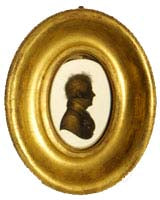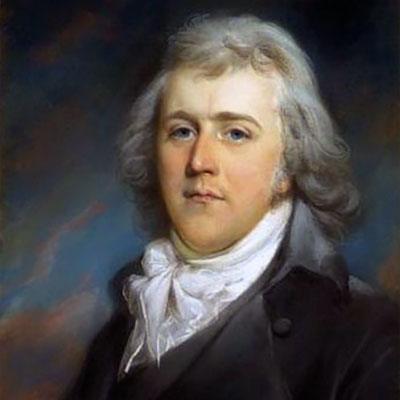
D'Arcy Wentworth: Heroic Inspiration?

Jane Austen's Aunt was once at risk of transportation to Botany Bay for shoplifting. It is piquant then, that Austen named two of her major male characters Fitzwilliam Darcy (Pride and Prejudice) and Captain Wentworth (Persuasion), because a leading inhabitant of New South Wales in those years was D'Arcy Wentworth, a disreputable but acknowledged kinsman of Lord Fitzwilliam. D'Arcy Wentworth's career smacks more of Georgette Heyer than Jane Austen, since he was a highwayman four times acquitted. Rather than push his luck further, he went, a free man, as assistant surgeon with the Second Fleet in 1790. As a young teenager Jane Austen may have read about him in the Times.
Remembered in Australian history, his origins somewhat fudged, as father of the better-known W.C. Wentworth, D'Arcy turns out to be a complex and significant character. All his life he was an outsider. Born in Ireland in 1762, he was the youngest son of a Protestant innkeeper whose family had come down in the world. D'Arcy qualified as an assistant surgeon in London, but then gravitated to vice and crime; through flash arrogance, Ritchie thinks, rather than a self-destructive urge. Once in Australia, Wentworth spent his first six years on Norfolk Island, the margin of marginalised New South Wales.
Back in Sydney, he still seemed too raffish for intimacy with the New South Wales Corps clique, the Macarthurs and their like. Because of his professional skills and an economic clout built up through trade, notably in rum, Wentworth could not be ignored. Walking alone, he trod delicately through the feuds and alliances which culminated in Governor Bligh's overthrow in 1808. Bligh had suspended Wentworth for allegedly using government prisoners on his own private projects; so it was not surprising that Wentworth sided with Macarthur and the men of property who made the Rum Rebellion. But he did not draw too close to them, and when Governor Macquarie arrived in 1810 Wentworth soon won favour with him.
By the end of 1810 the erstwhile outcast was principal surgeon, justice of the peace, commissioner for turnpike roads, and superintendent of police -- the last appointment beginning a venerable New South Wales tradition of contentious appointments. Not surprisingly in one who learned his political ethics in eighteenth century Ireland, Wentworth tended to be a lax and negligent administrator, happy to leave the work to subordinates while he got on with the serious business of enriching himself.
Except when his business interests brought out the bully in him he was a humane justice who punished leniently. He weathered the criticisms following Commissioner Bigge's reports in the early 1820s. When a court of quarter session was set up in 1824 he would have been its chairman but for failing health. Not bad for an ex-highwayman. Success in the cut-throat business and factional politics of early New South Wales often depended on the quality of aristocratic influence which could be brought to bear in London. Where Macarthur had to exert himself in courting Lord Camden or Sir Joseph Banks, Wentworth had the inside running through his shadowy kinship with Lord Fitzwilliam. In addition to direct patronage, Wentworth had access to the earl's London agent, the long-suffering and trustworthy Charles Cookney, who looked after commercial matters and fostered Wentworth's sons when they were sent to England for education.
These sons were the children of the convict Catherine Crowley, Wentworth's common law wife until her death in 1800. He never married, but through serial monogamy produced at least twelve children, the last born some months after his death, aged sixty-five, in 1827. The eldest son, William Charles, was the apple of D'Arcy's eye, and some of Ritchie's subtlest and most telling insights chart the changing relationship between father and son. Where D'Arcy was cool, diplomatic, and rationally self-interested -- a gentleman of the road, maybe, but still a gentleman -- William was roughshod, Byronic, and passionate. The father compartmentalised his life with almost chilling efficiency. He never wrote to his Irish family and seldom allowed personal rancour to interfere with business. In William's character private and public motives fused stormily. He fought the Macarthurs not just because they were powerful, but because they snubbed his courtship of their sister.
Geoffrey Bolton is Senior Scholar in Residence at Murdoch University. This article originally appeared in The Australian Book Review (June, 1998) and is reprinted with their permission. Jane & D'Arcy, the story of Jane Austen and D'Arcy Wentworth's hidden romance, by Wal Walker, a descendent of D'Arcy, was published in two voulmes in 2017.
Enjoyed this article? If you don't want to miss a beat when it comes to Jane Austen, make sure you are signed up to the Jane Austen newsletter for exclusive updates and discounts from our Online Gift Shop.



Leave a comment
This site is protected by reCAPTCHA and the Google Privacy Policy and Terms of Service apply.